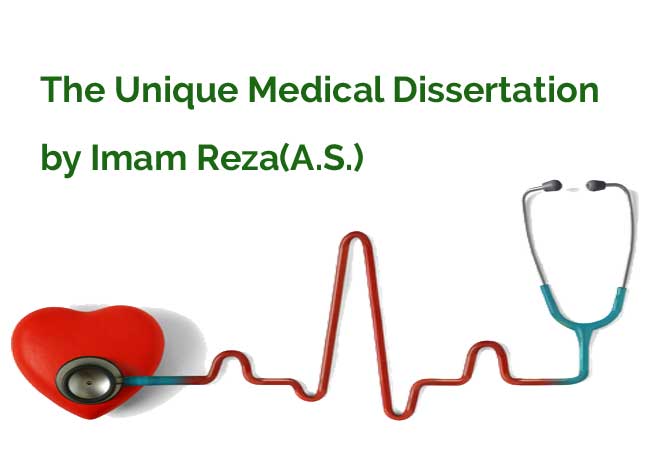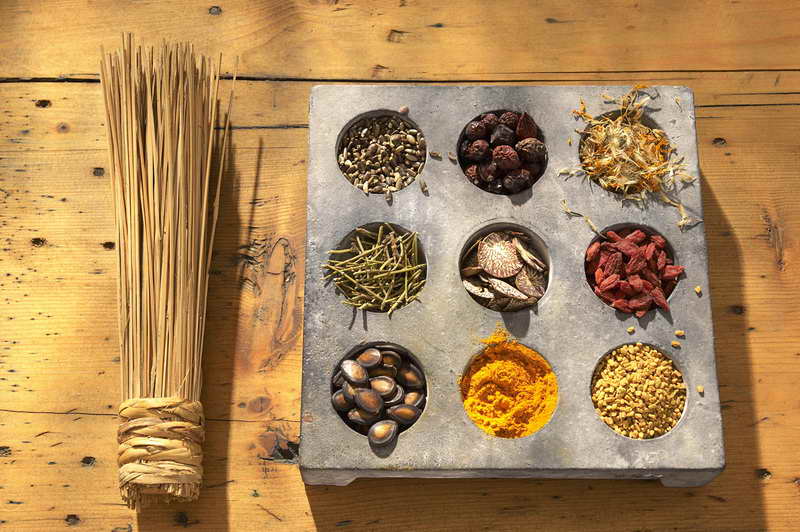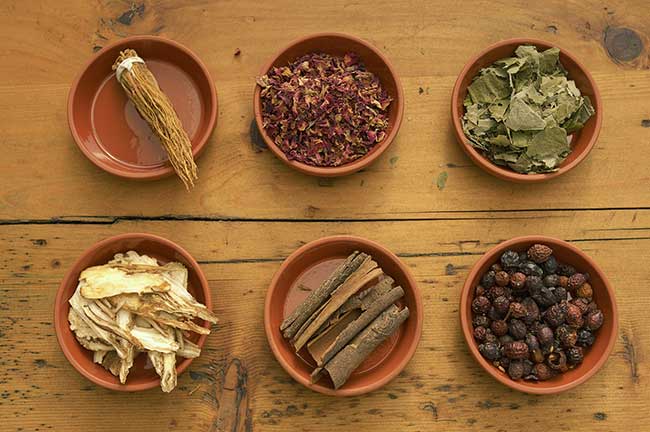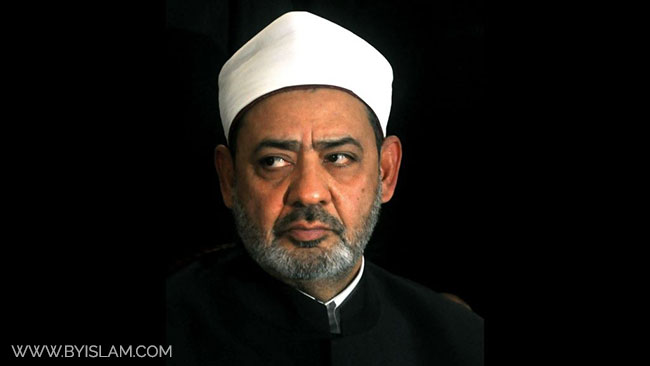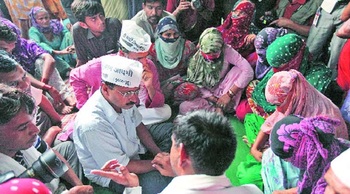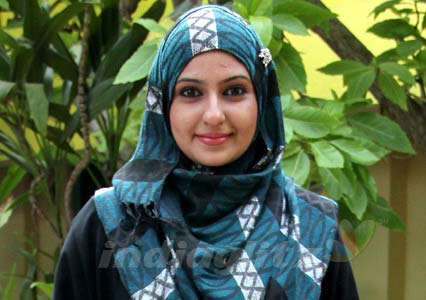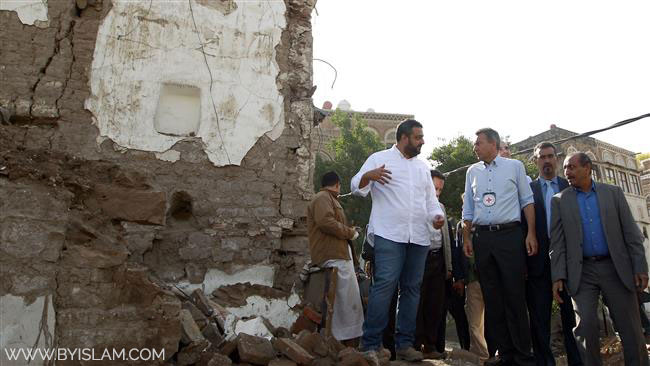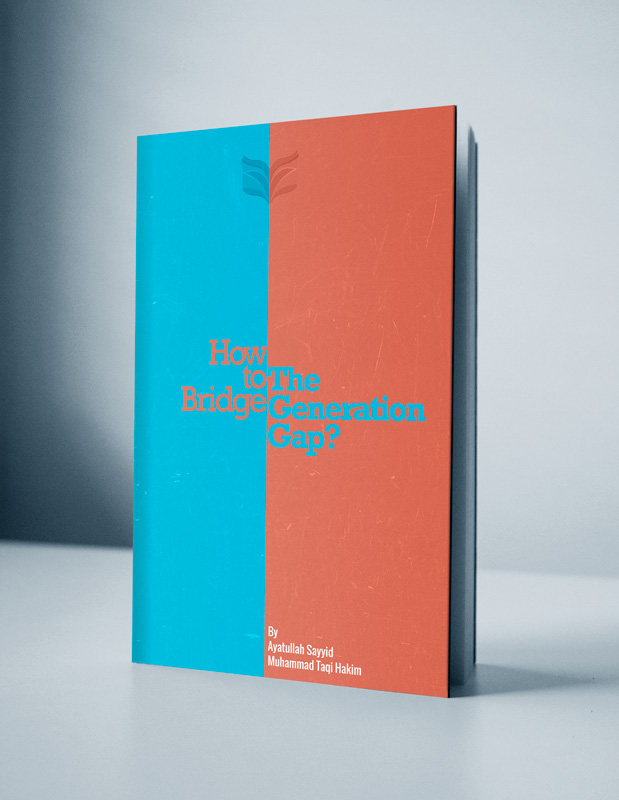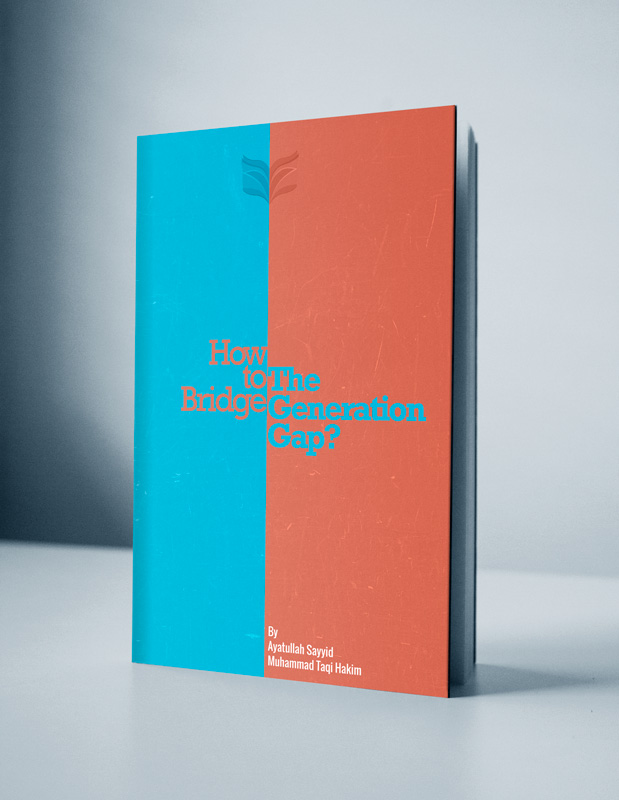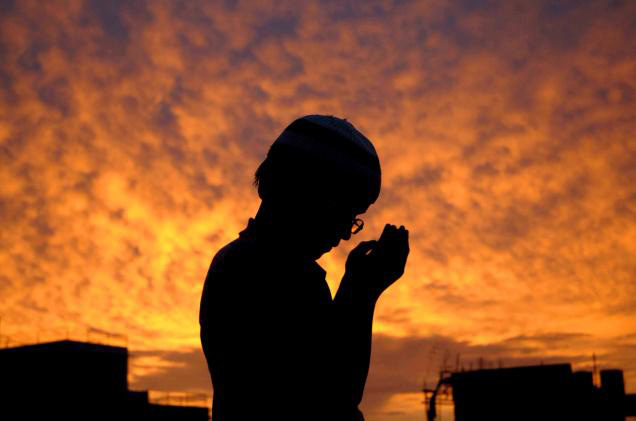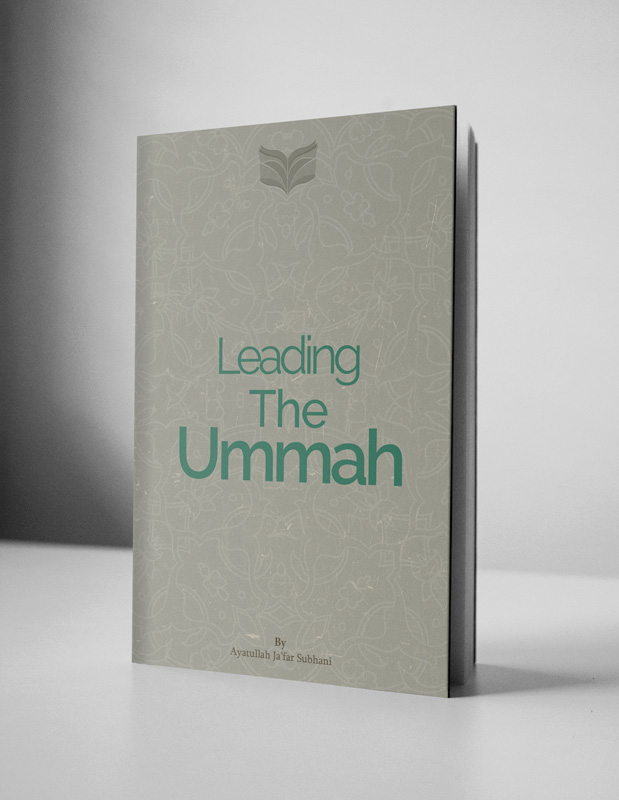The Unique Medical Dissertation by Imam Reza(A.S.)
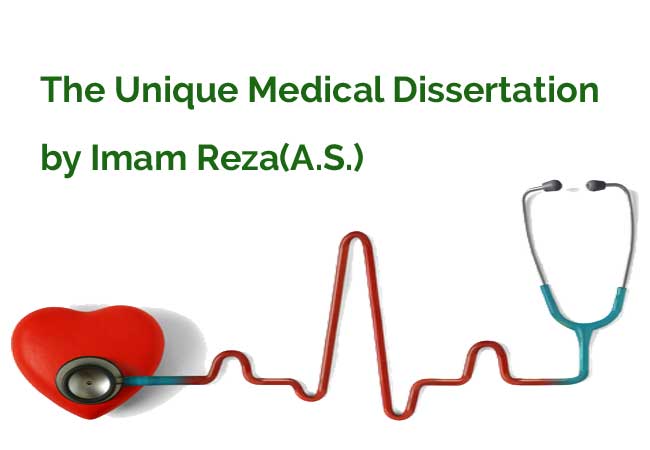 The Unique Medical Dissertation by Imam Reza(A.S.)
The Unique Medical Dissertation by Imam Reza(A.S.)
The sciences of Ima`m al-Reza`, peace be on him, were not confined to the precepts of Islamic law; rather they included all kinds of science of which was medicine. The Ima`m was unique in medicine, and the clear proof of that is this dissertation which al-Ma’mun called al-Risala al-Dhahabiya fi al-Tibb (the golden medical dissertation). As al-Ma’mu`n admired the dissertation, he gave the Medal of Doctor to the Ima`m, peace be on him.
The dissertation contains general programs necessary for putting right man’s body and protecting it from diseases, so it is regarded as the main base of preventive medicine in these times and as a great means of improving health. Any how, it is necessary for us to give a brief outline of this dissertation before presenting it. That is as follows:
The Text of the Golden Medical Dissertation
As for the text of this medical excellent dissertation, we have quoted it from the book entitled Tibb al-Imam al-Reza, which is one of the publications of the al-Haydariya Press. It was printed in the year 1385 A. H., and it reads as follows: “In the Name of Allah, the Most Gracious, the Most Merciful. Know, Commander of the faithful, when Allah tries a servant with a disease, he appoints for him a medicine in order to cure himself with it, and for every kind of disease there is a kind of medicine, conduct, and prescription.”
This paragraph gives an account of Allah’s firm wisdom in creating man, who contains wonderful systems which are subject to various kinds of diseases. Allah, the Exalted, creates a disease and creates a medicine for destroying and putting an end to such a disease. Nowadays, medicine has reached zenith: antibiotics such as penicillin and oromycin have been discovered, the science of surgery has been developed, so a group of diseases such as tuberculosis, enteritis, and typhoid has been folded and thrown into the sea. Accordingly, modern medicine has confirmed the wise words of the grandson of the Prophet, may Allah bless him and his family, who says that Allah appoints a medicine for each disease. As a result, those diseases which have no cure will be omitted from the file of medicine.
Ima`m al-Reza`, peace be on him, has said: “Man’s body is just like a kingdom: The heart is the king of the body; the (blood) vessels, the limbs, and the brain are workers. The house of the king is his heart; his land is the body; the helpers are his hands, his legs, his eyes, his lips, his tongues, and his ears; his storekeepers are his stomach and his abdomen; and his chamberlain is his chest. Therefore, the hands are two helpers which bring (things) near, take (them) away, and work as the king reveals to them.
The legs carry the kings wherever he likes. The eyes lead him to that which disappears from him, for the king is behind a curtain and does not reach it except through them. They are also his two lamps; they are fort and well-fortified place of the body. The ears introduce nothing to the king except that which agrees with him, for they are unable to bring in anything unless the king inspires to them. When the king inspires to them, he keeps silent and listen to them. Then he answers whatever he likes; and the tongue explains on his behalf with many tools of which are the wind of the heart, the steam of the stomach, and the help of the two lips; and the two lips have no strength except by the means of man, and they are in need of each other.”
The wise Ima`m has shown man’s body; this wonderful body through which Allah’s mighty power, His marvelous creation, and His firm regulation have manifested themselves. In this connection Allah, the Exalted, says: O man, what has beguiled you from your Lord, the Gracious One, Who created you, then made you complete, then made you symmetrical, into whatever form He pleased He constituted you. Concerning this body containing systems and cells which none can describe, the pioneer of wisdom and eloquence in Islam, Ima`m ‘Ali, the Commander of the faithful, peace be on him, says: “Do you think that you are a small body, while the greatest world has folded itself in you.”
Yes, man is not a limited skeleton; nor is he a small body; rather he contains the whole world, so he is a group of universes and worlds.
The Prophet’s grandson, source of knowledge and wisdom (i.e. Imam al-Reza) has likened man’s body to the government whose machinery consists of a president, soldiers, helpers, and a land over which it rules. The Imam, peace be on him, has mentioned the following main organs and systems of the body:
- The Heart
As for the heart, it is one of Allah’s marvelous signs in man’s body, for it pumps the blood to all parts of the body, and the blood conveys food and oxygen in order to distribute them among all places of the body, and then it conveys the waste products in order to rid the body of them.1 - The heart pumps the blood to the lungs in order that they may take adequate supply of oxygen from the air which man breathes. In the lungs, the blood gets rid of some waste products which it gathers from the parts of the blood and which take form of a gas called carbon dioxide. The heart also pumps the blood to the kidneys.
- As for the regulation of the beats of the heart, it is one of the secrets of creation and origination; the average of the beats of the heart is seventy times per minute. So their average amounts to one hundred thousand times a day, forty million times a year, and over two thousand millions in middle age. Therefore, we must think of this great glorification which never ceases nor flags by night and day. We must think of this marvelous sign in the body, which is the organization of heat. There is something like thermometer in the body.
- When sensory news comes from the skin and tells about the external surroundings and degree of their heat, this area which is in the brain stem and what is on it hurries to the circulatory system and urges it to protect the external boundaries and orders it to play the role of the sincere worker during this crisis, and the flexible circulatory system responds to it, and quickly the contraction of the blood vessels occur, and the heart pumps adequate supply of blood to the skin. If the skin is cold, the flow of blood which conveys heat increases in order to remove the coldness and vice versa.
Surely, the heart is the source of man’s and animal’s life; therefore, it is the king of the body, and all man’s organs are its soldiers and helpers. - The Nerves
As for the nerves, they are the sinew of life; and it is they which control the body; and they play an important role during anger, fear, the rest of the emotions, match, sexual work, and the like. Some nerves are called voluntary, and they control a group of muscles in the body which are called the striated muscles. In this connection some important physiological researches have been mentioned; therefore, the nerves are proof of the Wise Creator’s mightiness. - The Brain
As for the brain, it is the greatest of all Allah’s creatures; it dominates the whole body, controls all movements of it; and drives it to wherever it desires; and by it man is distinguished from the rest of animals. Allah has singled out the brain for man, and through it He has ennobled man over all His creatures.
Surely, the brain is a world of wonders. No creature can match it in greatness, for it contains stores which never are full and it preserves whatever knowledge is deposited in it. If we want to mention the wonders of the brain, then we have to write a full book about them. Glory belongs to Him who has originated and created the brain! - The Hands and the Legs
Among the amazing organs in man’s body is the hand, which helps man accomplish his own needs such as preparing food and drink, and which help him perform wonderful works such as writing, goldsmithing, building, and others. The hand carries out all these works according to signals and guidance it receives from the brain, for it is as a worker in the factory of the brain; likewise, the leg helps man walk and accomplish his own needs. Were it not for the hand and the leg, man would do nothing. So glory belongs to Allah, the Wise! - The Ear
One of the marvelous organs in man’s body is the ear, which contains the following:
A. The Outer Ear: It is the lobe of the outer ear along with the cannel which leads to the eardrum.
B. The Middle Ear: It has three bones just as the tools of a blacksmith: the hammer and the anvil, the stirrup, and the two muscles of the hammer and the stirrup; there is a lobe which connects the middle ear to the pharynx.
C. The Inner Ear: It contains something like snail and three semicircular canals, and these parts are connected with each other and interlocked. Membranous canals like bags are in the semicircular canals, and Korti organ is in the cochlea, which circles two times and a half.
It is the inner ear which receives sounds. As for the middle and the outer ears, they convey sounds.
Sound results from the vibration of the molecules of a matter, so it does not travel unless there is a material means such as liquid air, gases, solid bodies, and the like. Medical books have mentioned important researches regarding sound, which reveals the Wise Creator’s mightiness and marvelous creation.1 - The Eye
As for the eye, it is among Allah’s greatest signs, for through it man receives light, knows external surroundings, realizes forms and colors. It is the most marvelous room of art photography; for it is a dark room and closed by three walls which are from outward to inward: the sclera which gives the white color to the eye; the choroid which irrigates the eye through its veins; the retina which conveys the sensitive elements; cones and rods which receive light. In the front there is a thin crystal called the cornea which let the light coming to the eye enter.
Then the light, after the cornea, passes through the transparent liquid which refracts light; it is the aqueous humor which lies between the cornea and the iris; and it is the iris which gives the familiar color to the eyes, in the middle of it there is a special opening receiving light and is like the lens of a photographer; it is called the pupil.
When light enters the pupil, it faces a crystal of a new kind; it is the crystal body (the lens); it is the most marvelous crystal in existence, for it expands and contracts to the extent that the forms of its convexity are very different; therefore, the eye harmonizes with the views before it. If the visible distance is near, it expands and changes in order to fit the condition, and vice-versa; therefore, it is the sane, motive crystal. After the crystal body, light enters a new, transparent humor refracting light; it is the vitreous humor. When light ends passing through it, it reaches the retina where the rods and the cones receive and move it as a nervous stream to the occipital lobe.
The eye is marvelous in creation and protection, for Allah, the Most High, has placed it in a low, facial area surrounded by three high hills, which are: the eye-brow, nasal pyramid, and the bony prominence of the forehead as well as it is covered by lids which opens and shuts very quickly. Besides Allah has surrounded it by tears in order to purify and moisten it. So glory belongs to the Creator, the Originator, the Almighty!
Ima`m al-Reza`, peace be on him, has mentioned some organs of man’s body. He has shown their characteristics and their functions (anatomy). Now, let us move to another part of this dissertation. He, peace be on him, has said: “And speech is not good unless it is repeated through the nose, for the nose adorn speech as blowing adorns the flute; likewise, the nostrils are the two openings of the nose and they bring good air to the king. If they bring bad, displeasing air to the king, he reveals to the hands to be as a curtain between him and that bad air.
There will be a reward and punishment for the king because of this, so his punishment is severer than that of the outward, powerful kings in the world, and his reward is better than theirs. As for his punishment, it is sadness; and as for his reward, it is happiness. The origin of sadness is in the spleen, and the origin of happiness is in the kidneys and the ribs , and from them they reach the face, so from there happiness and sadness arise, so their signs are seen on the face, and all these blood vessels are ways of workers to the king, and from the king to the workers, and the proof of that is that when you take a medicine, the blood vessels convey it to the place of illness, with their help.”
The Prophet’s grandson (i.e. Ima`m al-Reza`) has displayed the operation of utterance and mode of expression, which is a wonder in itself, for speech comes out harmoniously and equally balanced, and it aims at a certain (thing); and it is among the unique, wonderful phenomena which are proof of the Almighty Creator’s mightiness. He, the Most High, says: The Beneficent (Allah) taught the Qur’a`n; He created man; He taught him the mode of expression. So what man wants to perform before uttering it arises in the brain, which inspires the tongue to perform it, and that occurs through a wonderful operation which the concerned in this research have mentioned.
The Ima`m, peace be on him, has mentioned that the reward and punishment which the heart and the brain bring about to man’s body. Both reward and punishment appear on the expressions of the face; happiness covers the face when there is a reward; and sadness covers it when there is a punishment. The Ima`m has shown that the origin of sadness is the spleen, and the origin of happiness is the kidneys and the ribs. These phenomena result from these organs in man’s body.
He, peace be on him, has said: “And know, Commander of the faithful, that the body is like a good land which is maintained by plowing and watering; water should not be increased lest it should drown it; nor it should be decreased lest it should make it thirsty, so that its reformation lasts; its revenue increases; and its plants grow. If the land is neglected, it becomes spoiled and no plant grows therein; therefore, the body is like such a land; it becomes good and well-being flourishes through organizing foods and drinks.
“O Commander of the faithful, reflect on the food which fits you and your stomach, strengthens your own body and gives it to enjoy it, so estimate and carefully consider your own food.
“And know, O Commander of the faithful, that each one of these natures likes that which suits it; therefore, eat that which suits your own body; he who takes an increase of food does not make use of it; and he who takes an amount of food without an increase or a decrease makes use of it; and raise your hand from food while you still incline to it; for it puts right your own body and stomach, pure your reason, and lightens your body.”
The wise Ima`m has specified the general program of general health, which depends on balance and immoderation in eating and drinking. The Qur’a`n has mentioned this rule regarding keeping man’s body and protecting it from diseases; saying: Eat and drink but do not be extravagant.
Surely the digestive system is the most important one of man’s systems; it is the most vital and sensitive of them, for it is affected by the extravagance of food which results in fatness, which is one of the blights which destroy man’s body.
Certainly taking care of nutrition, especially in the prim of life, has a great effect on the health condition in the years that follow as well as it lengthens the period of youth; and it is one of the most modern means in preventive medicine; therefore, the different diseases which affect man are a direct result of extravagance in food and drink, unbalanced sexual life, and other life affairs.
The wise Ima`m has likened man’s body to a fertile land; and this is a very wonderful comparison, for if man takes care of his land and reforms it, then it will produce and give the most agreeable crops; and if he turns away from it and neglects it, it will be damaged, die, and not give any crop; likewise, if man takes care of his body, puts it right, and does not spoil it through extravagance in food and drink, it becomes good and he enjoys health, which is the most expensive thing in man’s life.
The Ima`m, peace be on him, has emphasized the necessity of avoiding extravagance in food, and that man should raise his hand from food while he is still desirous of it, for that is the most useful way for keeping his health and protecting him from diseases. Definitely, eating too much food leads to fatness, which gives rise to the following:
A. Heart failure
B. High blood pressure
Now, let us move to another part of this dissertation. He, peace be on him, has said: “O Commander of the faithful, eat cold (foods) in summer, hot (foods) in winter, and moderate (foods) in the two seasons according to your strength and appetite; and start with the lightest food on which your body feed according to your material, your ability, your activity, and your time in which you must have food every eight hours or three meals every two days;
you must have food early at the beginning of day, and then you have supper; when eight hours of the following day passes, you must eat one lunch; and you are in no need of supper; likewise, my grandfather, Mohammed, may Allah bless him and his family, ordered ‘Ali, peace be on him, to have one meal on every day and two meals on the following day; that should be according to an amount which should be neither increase nor decrease; raise your hand from food while you feel appetite for it; and let your drink be immediately after your food.”
This part of the dissertation gives an account of organizing the food on which general health stands as follows:
A. One must have light foods during the days of summer, for having heavy foods causes heavy damages to his own body. As for winter, it is on the contrary, namely, one must have heavy food which containing fat and sugar, for his body is in need of them.
B. One must have food according to his own ability; he must not overexert himself in having food.
C. One must have the lightest and the easiest food for the digestive system; in the mean time, he must take into consideration his own age, for when man grows old, he must have light food with little salt and fat, for they bring about arteriosclerosis, especially when he is over fifty years of age.
D. One must decrease the meals of food; he must confine himself to three meals of food, according to what the Ima`m, peace be on him, has detailed; without doubt this way makes body sound and safe from diseases.
E. The Ima`m has underlined that it is necessary for one not to eat any food except when he feels appetite for it and must not fill his own stomach with it. These are some valuable health pieces of advice.
Now, let us read another part of this dissertation. He, peace be on him, has said: “Now we must mention what must be mentioned regarding the direction of the seasons of the year and its Roman months which occur therein; each season (must be mentioned) separately; the foods and drinks which must be used (therein); what must be avoided; and how one must maintain (his) health, according to the view points of the old.”
This part of the dissertation is a preparatory preface concerning what man must have and avoid during the seasons of the year. He, peace be on him, has said: “As for the season of spring, it is of the rest of time, and its beginning is March (Adhar); and the number of its days is thirty days; and therein day and night are good; the earth becomes soft; and the power of phlegm terminates; the blood becomes exited; and one must use light food and meat; and he must refrain from eating onions and garlic and sour (things); and he must use laxative therein; and he must use therein bloodletting and cupping.”
The Ima`m has mentioned the season of spring, which is the most beautiful one of the seasons of the year, and the most useful of them to living beings. How wonderful these words of the Ima`m: “It is of the soul of the time.” That is because, therein, night and day become good; the earth becomes soft; the blood becomes exited. The Ima`m has warned men against eating onions and garlic and sour things, for they bring about diseases which modern medicine will discover, as well as he has regarded it as recommended to have laxative and to take some blood through bloodletting and cupping.
He, peace be on him, has said: “April (Nisa`n) is thirty days; day lengthens therein; the temper of the season becomes strong; the blood moves; the east wind blows; roasted foods are used therein, what is prepared with vinegar; the meat of (birds and animals which are) hunted; and you must treat yourself with having a sexual intercourse, and then massaging yourself with an ointment in the bathroom; drink water before breakfast; smell flowers and scent.”

